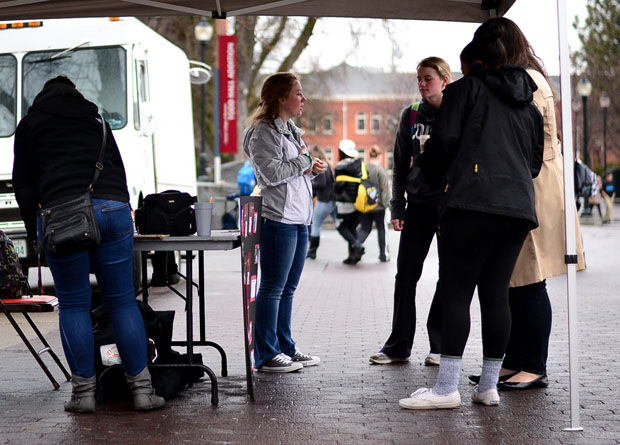#itooamwsu
February 5, 2015
WSU students can voice their opinions about oppression through a campaign called the #ITOOAMWSU located outside the CUB between Feb. 3-5.
#ITOOAMWSU originated from Harvard, where black students took their picture with a phrase or situation that made them feel subjected to discrimination.
Residential Education Directors Brittany Griffin, of Stephenson South, and Sarah Al Rashoodi, of Gannon-Goldsworthy of the Social Justice Committee brought the campaign to WSU in hopes opening the eyes of students on campus.
They decided to expand it to all students on campus to include anyone who has ever experienced microaggressions.
Junior genetics and cellular biology major Ellie Marston, a leader in the program, defined microaggressions as “negative behaviors and language patterns engraved in our culture.”
“The campaign is working towards breaking down stereotypes,” Marston said.
To break down stereotypes, it’s important to raise awareness about them, as most stereotyping occurs unconsciously, she said.
Marston said while she definitely sees prejudice on campus, she credits the university’s multicultural student base.
“We have a very homogenous campus,” Marston said. “We want to make the residence halls a welcoming, safe environment they can all call home.”
In order to create this environment, Marston said students must realize prejudice and be self-accountable.
“It’s important that students are examining their own behavior,” Marston said. “We want a student body that is policing one another.”
Shanell En Low, a sophomore majoring in chemical engineering who also works on the campaign, said she took a look at the #ITOOAMHARVARD tumblr webpage.
“I was just surprised at what was actually said,” En Low said, “coming from the perspective of the actual people.”
Both Marston and En Low have experienced microagressions in their lives.
Marston said many people look at her and tell her that she ‘”looked” like a women’s studies major.
En Low said she felt microagression when people were surprised that her major was chemical engineering just because she is a girl.
“We are also hoping to make a documentary video where students can explain the instances of these microagressions in more detail,” Al Rashoodi said.
The photos will be displayed during the Tunnel of Oppression event Feb. 17-19.















